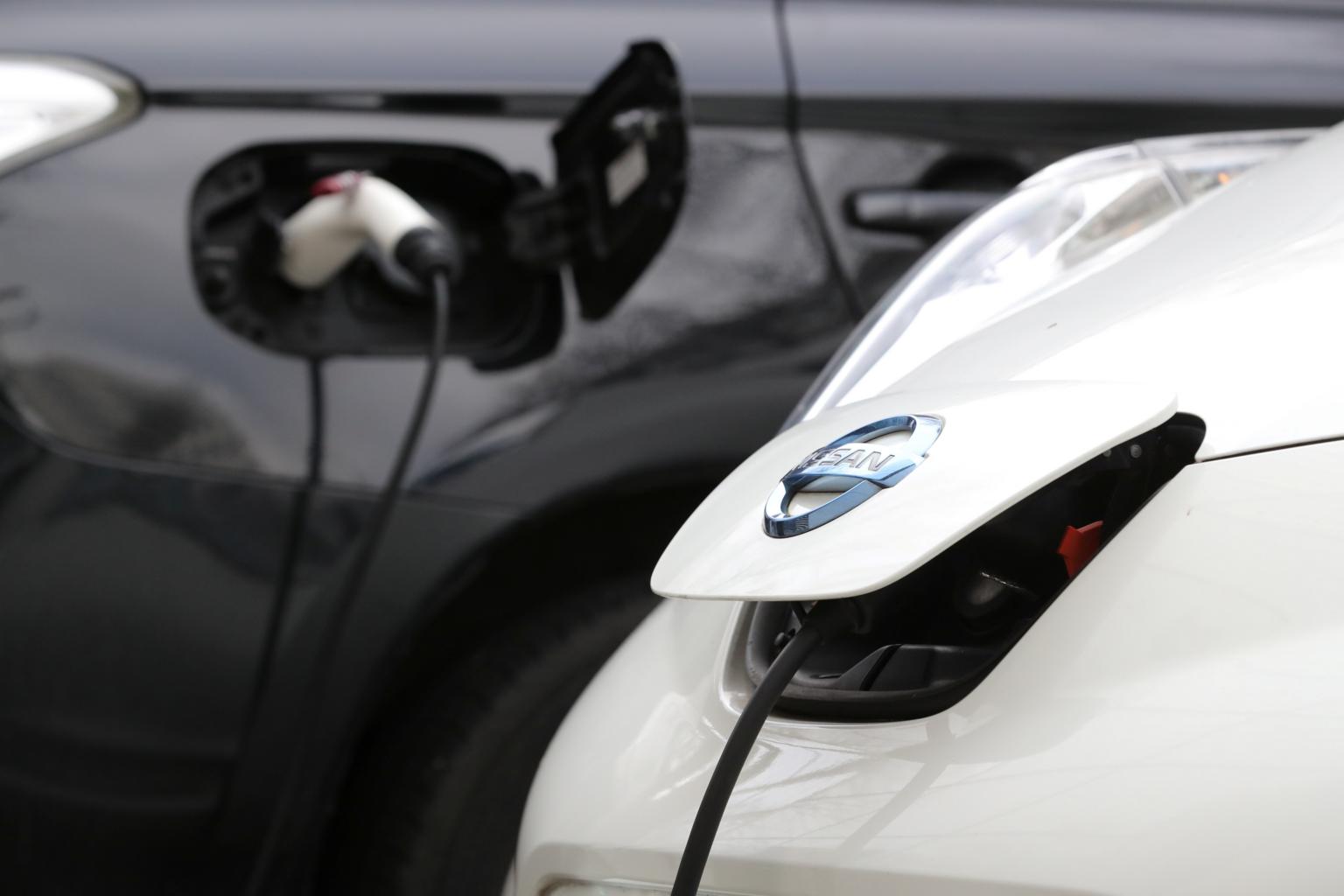Push for electric vehicles hailed but doubts remain
Sign up now: Get ST's newsletters delivered to your inbox

It was noted in the Budget that the number of charging points will grow from 1,600 now to 28,000 by 2030.
PHOTO: REUTERS
Major car brands and dealerships have backed the push to adopt electric vehicles (EVs), but questions remain about the number of charging points that will be available.
Measures outlined in Tuesday's Budget aim to make EVs more attractive from next year through a mix of tax rebates, early adopter incentives and a wider charging infrastructure.
Industry players have welcomed the moves.
Ms Jasmmine Wong, managing director of Borneo Motors Singapore, which distributes Toyota and Lexus vehicles, said: "This slew of EV initiatives will definitely strengthen and accelerate our ambition to introduce new... EVs in Singapore."
Audi Singapore managing director Markus Schuster said the initiatives align "very well" with the company's own electrification strategy as the overall scheme "lowers the total cost of ownership and definitely incentivises adoption".
"As for the lump-sum tax levied, it does not dilute the attraction of enjoying electric performance. Actually, the road tax reduction and savings from charging versus filling at the station more than compensates for the additional tax," he added.
Mr Schuster expects the road tax for the Audi e-tron - Audi's first mass-produced EV - to be reduced by 40 per cent, noting that the lower tax "better reflects the lower environmental impact of using an electric car on the road".
Ms Preeti Gupta, BMW Group's corporate affairs director for Asia, said the measures could "be the push that drivers in Singapore need to consider electrified vehicles", but warned that it was too early to tell to what extent the planned measures will impact the EV market.
She noted that while interest in EVs will grow, much depends on how quickly public charging infrastructure is deployed and how accessible charging stations will be. Installation in Housing Board estates and condominiums will also be essential.
The key thing for consumers living in HDB or high-rise flats is having charging infrastructure at home, transport economist Walter Theseira said, noting the lack of charging points and clarity on their use and business model as an issue.
"One charger can support only one EV if everyone expects to do overnight home charging," he said.
Aside from landed property owners, "I don't think you will see much adoption of EVs in 2021 unless the charging issue is worked out", Associate Professor Theseira added.
It was noted in the Budget that the number of charging points will grow from 1,600 now to 28,000 by 2030.
Mr Sean Goh, 32, who owns a Honda Civic, said that if costs came down, he would not mind switching to an EV.
Mr Goh, associate director of a human resources management firm, noted that more EVs and charging points also mean more choice for drivers. "As long as there are enough charging points for EV drivers, I don't foresee a problem with them in future."


